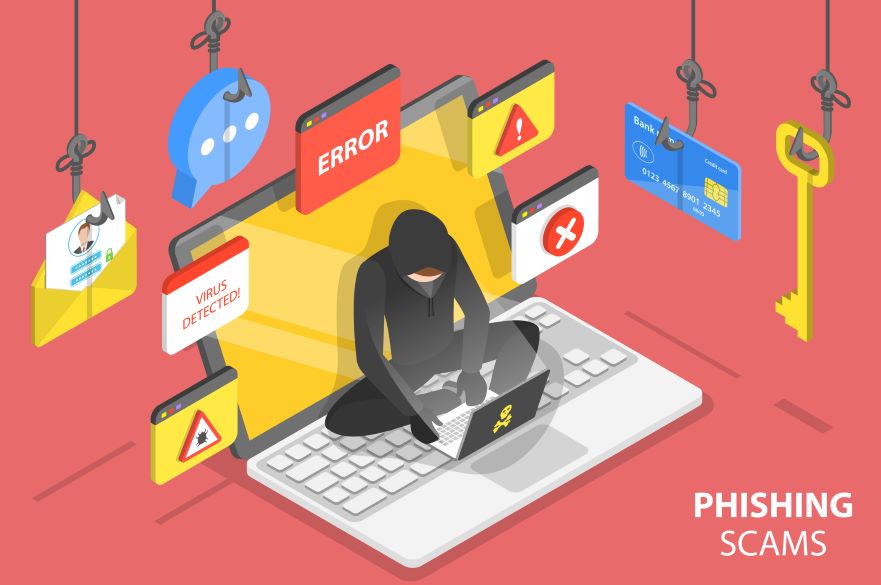Don't fall for these social engineering tricks
Published: 31/03/2022
What is social engineering?
Social Engineering is the art of manipulating someone into performing certain actions or divulging confidential information. In the context of cyber security, it is a technique or series of techniques, used to manipulate you into doing something beneficial for a cybercriminal.
Rather than use traditional hacking attacks, cybercriminals will take advantage of our trusting human nature to trick us into breaking normal security practices.
Social engineering attacks come in many different forms but the common thread running through them all is their exploitation of human behaviour.

Popular types of social engineering
These types of attacks have grown in frequency and sophistication and are proving to be a very successful way for fraudsters to gain access to sensitive data.
- Email phishing is the most traditional means of phishing, using an email urging you to reply or follow-up by other means. Web links, phone numbers, or malware attachments can be used.
- Voice phishing (vishing) phone calls may be automated message systems recording all your inputs. Sometimes, a live person might speak with you to increase trust and urgency.
- SMS phishing (smishing) texts or mobile app messages might include a web link or a prompt to follow-up via a fraudulent email or phone number.
How to prevent social engineering attacks
Beyond spotting an attack, you can also be proactive about your privacy and security. Knowing how to prevent social engineering attacks is incredibly important for all mobile and computer users.
Here are some important ways to protect against all types of cyberattacks:
- Safe communication and social media account management habits
- Never click on links in any emails or messages
- Use multi-factor authentication
- Use strong passwords (and a password manager)
- Avoid sharing names of your schools, pets, place of birth, or other personal details
- Be very cautious of building online-only friendships